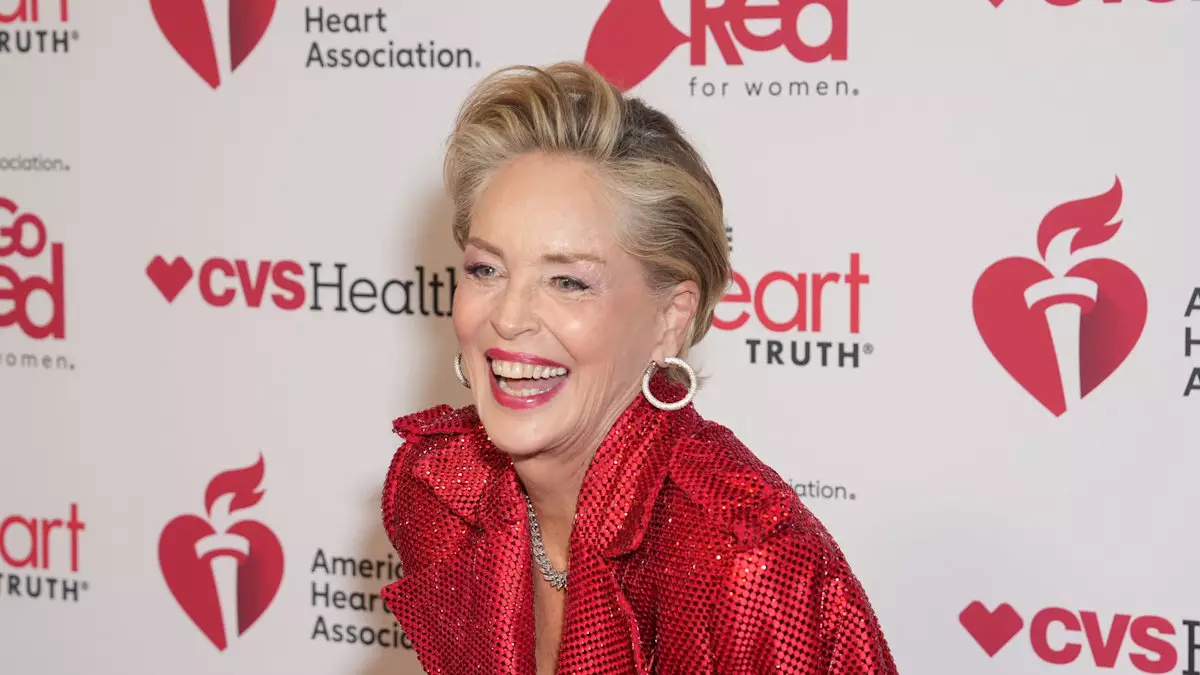Sharon Stone, the renowned actress whose name is synonymous with Hollywood glamour, has been far more than just a star on the silver screen. Over the years, she has emerged as a staunch advocate for women’s health issues, a mission that became profoundly personal following her harrowing experience with a stroke in 2001. Stone’s journey through adversity and advocacy offers insight into the complexities of women’s healthcare while showcasing the resilience of an icon who has navigated both personal and professional upheavals.
Recently, Stone took center stage at the American Heart Association’s Go Red for Women Red Dress Collection Concert, an event dedicated to illuminating the often-overlooked cardiovascular concerns among women. Here, she was surrounded by a constellation of celebrities, each united by a common goal: raising awareness about heart health, particularly in women, who have historically been underrepresented in medical research. By lending her voice and presence, Stone exemplified the importance of collaboration in advocacy, reminding us that collective action amplifies awareness and leads to meaningful change.
On the red carpet, Stone expressed her gratitude for her own life post-stroke, emphasizing how her near-fatal health struggle transformed her perspective on medical care for women. She poignantly pointed out past neglect regarding women’s gynecological health, critiquing prevalent medical practices that were often male-centric up until the early 21st century. This outdated approach, she argued, contributed to a broader neglect of vital health issues affecting women, including hormone imbalances that can precipitate strokes.
At 66, Stone remains not just a voice, but a living testament to the impact of health on personal and professional life. Following her stroke, which required a daunting seven years of recovery, she reflected on how health conditions can irrevocably alter trajectories. The prolonged absence from a competitive industry like Hollywood, she revealed, completely reshaped her career landscape: “I lost my momentum. In seven years, the industry moves on, and so do people’s interests,” Stone lamented. This highlighted not only her personal challenges but also opened a dialogue about the systemic biases individuals can face when they confront serious health issues.
Stone’s candid discussions about her health serve as a clarion call for a comprehensive reevaluation of how society prioritizes women’s health struggles. Unlike many public figures who may shy away from discussing their vulnerabilities, she embraces them, channeling her experiences into advocacy. Stone’s story exemplifies that those who endure resilience and healing have the power to influence systems and inspire generations.
Moreover, Sharon Stone’s advocacy reveals critical gaps in healthcare research and policy that disproportionately affect women. For decades, there has been a disconnect in understanding the unique healthcare needs of women. Stone’s statements underscore a broader need for systemic change, advocating for a shift from treating women’s health as an ancillary concern to placing it front and center in medical research and public policy.
Her experience has fueled her passionate stance that investments in women’s healthcare are vital. Stone’s statement about not wanting to find society in a position where “there’s a bunch of men who don’t have women to be with” conveys the urgency of addressing women’s health needs—not only from a medical but a socio-cultural perspective. Women’s health is integral to the broader health of society, and neglecting it can lead to dire consequences for everyone.
Sharon Stone’s journey is one of courage, resilience, and relentless advocacy. Through her efforts and personal experiences, she reminds society that every individual’s health story is interconnected, and the pursuit of progress in women’s healthcare is not solely a women’s issue, but a societal imperative. As she continues to advocate for better awareness and resources, she stands as an inspiring figure whose legacy extends well beyond her film roles, proving that in the face of adversity, one can emerge not only as a survivor but also as a champion for change.

